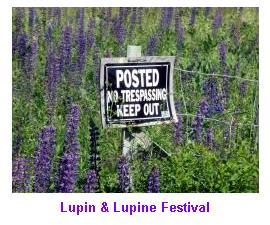 CONCORD, NH
CONCORD, NH - Do you admire bears? Want to help them? The best way to help bears is to be responsible about keeping birdseed, trash and other attractants out of your yard or campsite, say officials at the New Hampshire Fish and Game Department.
The topic of bears is in the news after bear complaints escalated recently in Hanover, NH, after two yearling bears were reported to have broken into a local residence. These latest bear break-ins were preceded by at least two other instances of bears being observed pushing against residence doors. The young bears are part of a local bear family that has become highly habituated to human food attractants, despite concerted efforts by the New Hampshire Fish and Game Department and the Town of Hanover to increase public awareness about the importance of minimizing such temptations.
As of May 26, 2017, a decision has been made to attempt to trap and relocate the problem bears.
It is worth noting that Fish and Game and the Town of Hanover have worked together for more than a year to address what local residents and the community can do to prevent conflicts with this group of bears. These efforts have included two public meetings focused on bear conflict mitigation, multiple site visits, numerous communications and contacts, the issuing of a warning under a bear feeding rule, and the recent training of a small group of dedicated residents on hazing techniques. In addition to the Department's efforts, both Hanover town officials and the Hanover Conservancy have worked to persuade residents to remove food attractants.
To put the Hanover bear issue in context, keep in mind that bear-human conflicts are commonplace throughout New Hampshire, says Fish and Game Bear Biologist Andrew Timmins. The NH Fish and Game Department and its close working partner USDA Wildlife Services respond to hundreds of bear complaints each year. The Hanover incident has gained attention because it is unfolding in a college town "south of the Notches," rather than in central or northern New Hampshire, where such occurrences are more common. (The exception is North Country towns such as Lincoln, Franconia, Gorham and Bethlehem, with bear-friendly ordinances that ensure limited access to human-related foods by bears.)
 What causes most of these conflicts?
What causes most of these conflicts?
During 2016, the biggest offender was unsecured garbage, which accounted for 38% of bear-human conflicts in New Hampshire. Birdfeeders (25%) and unprotected chickens/poultry (23%) also contributed significantly to bear-human conflicts. "If the public would be willing to address these three common attractants, we could significantly reduce annual bear-human conflicts," says Timmins. Food attractants causing problems in the Hanover area include birdfeeders and unsecured garbage, much of which is related to student rental properties.
For the past two decades, Fish and Game and Wildlife Services have been heavily vested in an active bear education campaign designed to prevent conflicts and the unnecessary loss of bears. This campaign has included the production and distribution of multiple bear education materials, bear abatement equipment loans, media outreach, a toll-free bear complaint phone line, public presentations, the hiring of summer bear technicians dedicated to conflict mitigation, and a huge investment of staff time and effort directed at preventing and resolving bear human conflicts.
"New Hampshire has one of the best bear-human conflict mitigation programs in the Northeast and probably the country," says Mark Ellingwood, chief of Fish and Game's Wildlife Division. "Our efforts have been particularly effective because of the Department's partnership with USDA Wildlife Services. We are one of the few Northeastern states that have stabilized bear-human conflicts."
How You Can Help Bears
- You can avoid encounters with bears by taking a few simple precautions:
- Stop all bird feeding by April 1 or at the onset of extended spring-like weather conditions.
- Clean up any spilled birdseed and dispose of it in the trash.
- Secure all garbage in airtight containers inside a garage or adequate storage area, and put garbage out on the morning of pickup, not the night before. If using a dumpster, inform your dumpster company that you need a dumpster with metal locking tops and doors that are inaccessible to bears and other wildlife.
- Avoid putting meat or other food scraps in your compost pile.
- Don't leave pet food dishes outside overnight.
- Clean and store outdoor grills after each use.
- Finally, never feed bears!
- Fence in all poultry and small mammals behind a woven wire fence with an outer-perimeter electric fence.
These steps will help to ensure that your backyard does not become attractive to bears and other wildlife, which is important because it prevents property damage by bears and because it keeps bears from becoming nuisance animals.
If you have questions about bear-related problems, you can get advice by calling a toll-free number coordinated jointly by the U.S. Department of Agriculture's Wildlife Services and the New Hampshire Fish and Game Department:
1-888-749-2327 (1-888-SHY-BEAR).















 1
1 2
2 3
3 4
4 5
5






